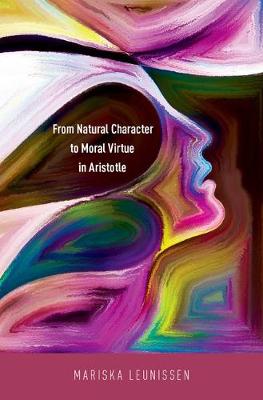
Stock image for illustration purposes only - book cover, edition or condition may vary.
From Natural Character to Moral Virtue in Aristotle
Mariska Leunissen
€ 134.66
FREE Delivery in Ireland
Description for From Natural Character to Moral Virtue in Aristotle
Hardback. Num Pages: 232 pages. BIC Classification: HPCA; HPQ; MFG. Category: (G) General (US: Trade). Dimension: 235 x 156. .
From Natural Character to Moral Virtue in Aristotle discusses Aristotle's biological views about character and the importance of what he calls 'natural character traits' for the development of moral virtue as presented in his ethical treatises. The aim is to provide a new, comprehensive account of the physiological underpinnings of moral development and thereby to show, first, that Aristotle's ethical...
Read moreProduct Details
Publisher
Oxford University Press Inc
Format
Hardback
Publication date
2017
Condition
New
Weight
28g
Number of Pages
248
Place of Publication
New York, United States
ISBN
9780190602215
SKU
V9780190602215
Shipping Time
Usually ships in 15 to 20 working days
Ref
99-20
About Mariska Leunissen
Mariska Leunissen is Associate Professor of Philosophy at UNC Chapel Hill. She is the author of Explanation and Teleology in Aristotles Science of Nature (CUP 2010).
Reviews for From Natural Character to Moral Virtue in Aristotle
Although many of these claims are already familiar, Leunissen argues for them in such a fresh and convincing manner that it makes it hard to (continue to) ignore them. As someone who regularly teaches Aristotle's ethics as a plausible and inspiring moral theory, this book made me question whether I am right to do so. ... I highly recommend this...
Read more